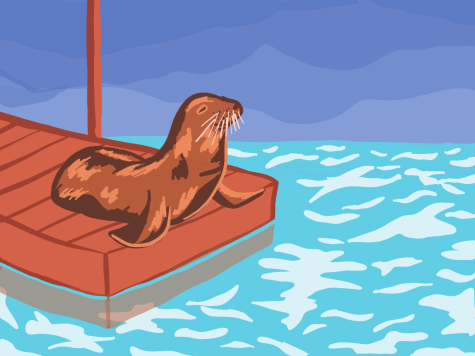Finding our sense of place
Achieving sustainability through ecotheology
March 10, 2022

Sustainability is the act of meeting our current needs without compromising the needs of those in the future, or simply the needs of others (including the needs of both humans and other animals).
However, sustainability has become a cheap word, even though being sustainable can be anything but cheap.
It seems each time I open up my social media there’s always a new advertisement for the next ‘eco-friendly’ product — from clothing brands to home goods.
Even the environmentalist influencers I follow often advertise new products to buy, which reinforces the idea that we must actively spend money to play the part of an environmentalist, rather than be thoughtful and slow to spend money. A love of the planet must be showcased through our outward appearance, though ‘stuff,’ which just isn’t accessible to everyone. Actual sustainability has been reduced to an equivocal label on an expensive pair of jeans.
I don’t mean to say that how we spend money isn’t a key part of protecting the planet — it is such an important piece. The products we buy have an environmental footprint and ethical implications as well.
However, it has become easy for companies and individuals to anchor our mindset of what it means to be sustainable into ‘things’ alone. This ultimately defeats the whole purpose of sustainability.
That mindset still puts more value into material items on the market, rather than putting value into God’s innately valuable creation.
As I’ve studied ecology and ecotheology at Seattle Pacific University, I’ve come to believe that being sustainable actually needs to start not from material things, but a framework in which we view the world as a whole. We need a sense of place.
A sense of place comes when we form an attachment to an environment we are a part of, an awareness of the world around us. We see the trees, hear the waves, feel the damp soil after one of our Seattle rains. It all becomes connected. It all becomes bigger than us.
For me, this looks like going to the Ballard Locks each week to observe and take photos of the seals and seabirds that hang out by the fish ladder. It’s not necessarily the most glamorous place (the trees killed by all the smelly bird poop can attest to that), but it’s somewhere close by to see some interesting local wildlife.
Every time I go, I learn something new. Sometimes the seagulls like to gather together and screech when a sea lion is about to break through the water. Sometimes the different sea birds fight over the buoy in the middle of the Locks — perhaps a perfect perch for watching the fish. And sometimes harbor seals seem so casually curious about us humans, they look straight up from the water, holding my gaze before they dive back down again, to be gone for minutes underwater.
Seeing these creaturely neighbors each week reinforces the passion I have for taking care of the earth, because it reminds me of what earth really is — that it is not our home just as humans, but the home of so many other innately valuable creatures. This weekly adventure helps me maintain a sense of place that encourages me to keep pursuing ecology, and ultimately, a desire to protect our common home.
Having this sense of place doesn’t require even leaving your dorm room. You see that house plant sitting on your desk? Just take a moment and imagine where it came from. Think about its story, reflect on the fact it is a living being. Or hear the crows make their raspy caw on the tree branch nearby — they too have an intricate life history and an essential role in the environment (and not just diving at students in Tiffany Loop!).
Now imagine a world where you didn’t get to see any plants grow before you, or hear any bird songs outside your window — perhaps it would feel like there was something missing.
From this sense of place, we form an attachment to the world that can act as fuel in our pursuit of sustainability. It’s easy to feel burnout creeping in because of how overwhelming the climate crisis is, along with a whole other range of related issues (biodiversity loss, habitat degradation, etc.). A sense of place doesn’t necessarily make it easier to manage that burnout, but I think it helps us stay anchored in the reasons why we want to help the Earth. It makes it all more personal.
With a sense of place also must come an acknowledgement of the land we reflect on. Here in Seattle, we are on traditional land of the first people of Seattle, the Duwamish People. We must find a sense of place that also involves thankful recognition and respect of the land itself, and the Duwamish Tribe.
























































































